Is Screen Time a Diet?
Description
You’re listening to Burnt Toast! Today, my guest is Ash Brandin of Screen Time Strategies, also know as The Gamer Educator on Instagram.
Ash is also the author of a fantastic new book, Power On: Managing Screen Time to Benefit the Whole Family.
Ash joined us last year to talk about how our attitudes towards screen time can be…diet-adjacent. I asked them to come back on the podcast this week because a lot of us are heading into back-to-school mode, which in my experience can mean feelingsss about screen routines.
There are A LOT of really powerful reframings in this episode that might blow your mind—and make your parenting just a little bit easier. So give this one a listen and share it with anyone in your life who’s also struggling with kids and screen time.
Today’s episode is free but if you value this conversation, please consider supporting our work with a paid subscription. Burnt Toast is 100% reader- and listener-supported. We literally can’t do this without you!
PS. You can take 10 percent off Power On, or any book we talk about on the podcast, if you order it from the Burnt Toast Bookshop, along with a copy of Fat Talk! (This also applies if you’ve previously bought Fat Talk from them. Just use the code FATTALK at checkout.)
Episode 208 Transcript
Virginia
For anyone who missed your last episode, can you just quickly tell us who you are and what you do?
Ash
I’m Ash Brandin. I use they/them pronouns.I am a middle school teacher by day, and then with my online presence, I help families and caregivers better understand and manage all things technology—screen time, screens. My goal is to reframe the way that we look at them as caregivers, to find a balance between freaking out about them and allowing total access. To find a way that works for us.
Virginia
We are here today to talk about your brilliant new book, which is called Power On: Managing Screen Time to Benefit the Whole Family. I can’t underscore enough how much everybody needs a copy of this book. I have already turned back to it multiple times since reading it a few months ago. It just really helps ground us in so many aspects of this conversation that we don’t usually have.
Ash
I’m so glad to hear that it’s helpful! If people are new to who I am, I have sort of three central tenets of the work that I do:
* Screen time is a social inequity issue.
* Screens can be part of our lives without being the center of our lives.
* Screens and screen time should benefit whole families.
Especially in the last few years, we have seen a trend toward panic around technology and screens and smartphones and social media. I think that there are many reasons to be concerned around technology and its influence, especially with kids. But what’s missing in a lot of those conversations is a sense of empowerment about what families can reasonably do. When we focus solely on the fear, it ends up just putting caregivers in a place of feeling bad.
Virginia
You feel like you’re getting it wrong all the time.
Ash
Shame isn’t empowering. No one is like, “Well, I feel terrible about myself, so now I feel equipped to go make a change,” right?
Empowerment is what’s missing in so many of those conversations and other books and things that have come out, because it’s way harder. It’s so much harder to talk about what you can really do and reasonably control in a sustainable way. But I’m an educator, and I really firmly believe that if anyone’s in this sort of advice type space, be it online or elsewhere, that they need to be trying to empower and help families instead of just capitalizing on fear.
Virginia
What I found most powerful is that you really give us permission to say: What need is screen time meeting right now? And this includes caregivers’ needs. So not just “what need is this meeting for my child,” but what need is this meeting for me?
I am here recording with you right now because iPads are meeting the need of children have a day off school on a day when I need to work. We won’t be interrupted unless I have to approve a screen time request, which I might in 20 minutes.
I got divorced a couple years ago, and my kids get a lot more screen time now. Because they move back and forth between two homes, and each only has one adult in it. Giving myself permission to recognize that I have needs really got me through a lot of adjusting to this new rhythm of our family.
Ash
Absolutely. And when we’re thinking about what the need is, we also need to know that it’s going to change. So often in parenting, it feels like we have to come up with one set of rules and they have to work for everything in perpetuity without adjustment. That just sets us up for a sense of failure if we’re like, well, I had this magical plan that someone told me was going to work, and it didn’t. So I must be the problem, right? It all comes back to that “well, it’s my fault” place.
Virginia
Which is screens as diet culture.
Ash
All over again. We’re back at it. It’s just not helpful.
If instead, we’re thinking about what is my need right now? Sometimes it’s “I have to work.” And sometimes it’s “my kid is sick and they just need to relax.” Sometimes it’s, as you were alluding to earlier, it’s we’ve all just had a day, right? We’ve been run ragged, and we just need a break, and that need is going to dictate very different things. If my kid is laid up on the couch and throwing up, then what screen time is going to be doing for them is very different than If I’m trying to work and I want them to be reasonably engaged in content and trying to maybe learn something. And that’s fine. Being able to center “this is what I need right now,” or “this is what we need right now,” puts us in a place of feeling like we’re making it work for us. Instead of feeling like we’re always coming up against some rule that we’re not going to quite live up to.
Virginia
I’d love to talk about the inequity piece a little more too. As I said, going from a two parent household to a one parent household, which is still a highly privileged environment—but even just that small shift made me realize, wait a second. I think all the screen time guidance is just for typical American nuclear families. Ideally, with a stay at home parent.
So can you talk about why so much of the standard guidance doesn’t apply to most of our families?
Ash
It’s not even just a stay at home parent. It’s assuming that there is always at least one caregiver who is fully able to be present. Mom, default parent, is making dinner, and Dad is relaxing after work and is monitoring what the kids are doing, right? And it’s one of those times where I’m like, have you met a family?
Virginia
People are seven different places at once. It’s just not that simple.
Ash
It’s not that simple, right? It’s like, have you spent five minutes in a typical household in the last 10 years? This is not how it’s going, right?
So the beginning of the book helps people unlearn and relearn what we may have heard around screens, including what research really does or doesn’t say around screens, and this social inequity piece. Because especially since the onset of COVID, screens are filling in systemic gaps for the vast majority of families.
I’m a family with two caregivers in the home. We both work, but we’re both very present caregivers. So we’re definitely kind of a rarity, that we’re very privileged. We’re both around a lot of the time. And we are still using screens to fill some of those gaps.
So whether it’s we don’t really have a backyard, or people are in a neighborhood where they can’t send their kids outside, or they don’t have a park or a playground. They don’t have other kids in the neighborhood, or it’s not a safe climate. Or you live in an apartment and you can’t have your neighbors complain for the fifth time that your kids are stomping around and being loud. Whatever it is—a lack of daycare, affordable after school care —those are all gaps. They all have to be filled. And we used to have different ways of filling those gaps, and they’ve slowly become less accessible or less available. So something has to fill them.
What ends up often filling them is screens. And I’m not saying that that’s nece

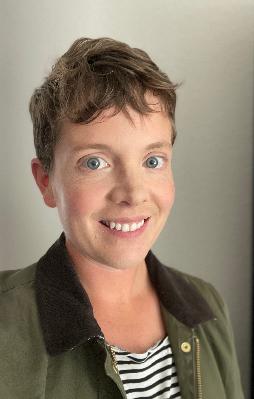


![[PREVIEW] The Year in Butters: 2025 [PREVIEW] The Year in Butters: 2025](https://s3.castbox.fm/97/0e/ee/44e1a0b26f934e73cb55f46ed899d75a91_scaled_v1_400.jpg)
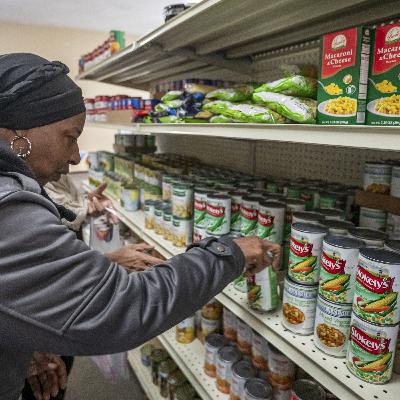
![[PREVIEW] Hot People Problems [PREVIEW] Hot People Problems](https://s3.castbox.fm/10/0c/c3/2c4186bb3ffaa958c5a4ee4d3888ceb6df_scaled_v1_400.jpg)
![[PREVIEW] Are Standing Pants Different from Sitting Pants? [PREVIEW] Are Standing Pants Different from Sitting Pants?](https://s3.castbox.fm/be/2c/0c/f737b964d5f27610acbbd373a16c29a78e_scaled_v1_400.jpg)
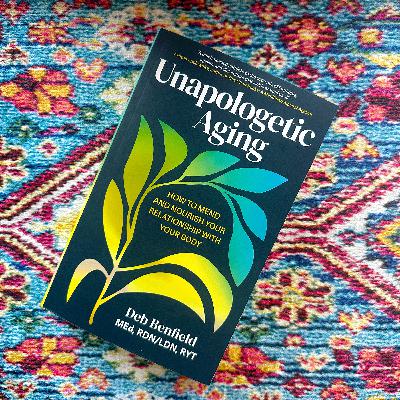
![[PREVIEW] How Much Did You Pay Your Pumpkin Stylist? [PREVIEW] How Much Did You Pay Your Pumpkin Stylist?](https://s3.castbox.fm/fe/3d/c0/dd8784a5450c5e085b6336501f2ac0f261_scaled_v1_400.jpg)

![[PREVIEW] Can A Body Acceptance Advocate Work for Weight Watchers? [PREVIEW] Can A Body Acceptance Advocate Work for Weight Watchers?](https://s3.castbox.fm/ce/6e/f2/62fdccc162b0b6bc777b5875f2c6d64cfa_scaled_v1_400.jpg)

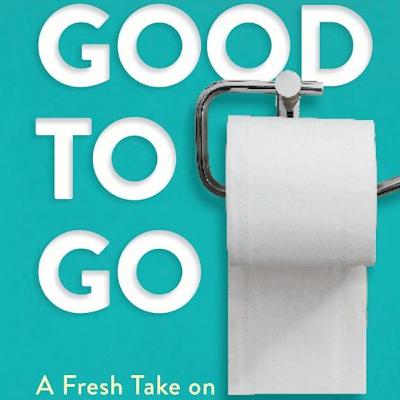
![[PREVIEW] Not Trying to Be Hot 25-Year-Olds [PREVIEW] Not Trying to Be Hot 25-Year-Olds](https://s3.castbox.fm/1c/8e/70/adb41c046a3fe07dc045af139e24fdcf89_scaled_v1_400.jpg)
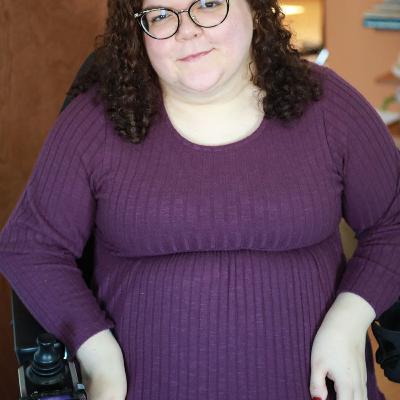


![[PREVIEW] Is Back To School A Diet? [PREVIEW] Is Back To School A Diet?](https://s3.castbox.fm/29/4e/50/fbf3f4de138a90fdd48db11f2d64935074_scaled_v1_400.jpg)

![[PREVIEW] The Mel Robbins Cult of High Fives [PREVIEW] The Mel Robbins Cult of High Fives](https://c10.patreonusercontent.com/4/patreon-media/p/post/140044903/63d8db77f7bf4ae6adc056b196ba3c37/eyJkIjo3MiwiaCI6MzAwMCwic3RyaXBfYWxwaGEiOjEsInciOjMwMDAsIndlYnAiOjB9/1.jpg?token-hash=_lgawLhrnuO4p0kAmMk8Wmg8kk1uHDzmHglZCAmOM1I%3D)



